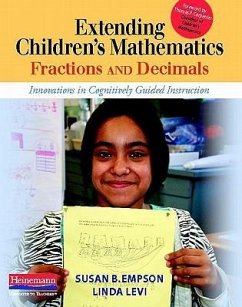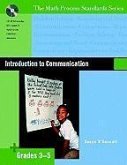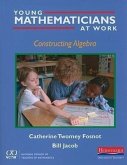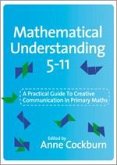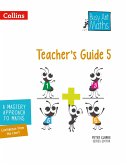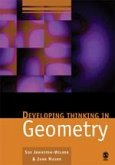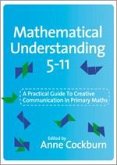"With the collaboration of a number of dedicated teachers and their students, Susan Empson and Linda Levi have produced a volume that is faithful to the basic principles of CGI while at the same time covering new ground with insight and innovation." --Thomas P. Carpenter This highly anticipated follow-up volume to the landmark Children's Mathematics: Cognitively Guided Instruction addresses the urgent need to help teachers understand and teach fraction concepts. Fractions remain one of the key stumbling blocks in math education, and here Empson and Levi lay a foundation for understanding fractions and decimals in ways that build conceptual learning. They show how the same kinds of intuitive knowledge and sense making that provides the basis for children's learning of whole number arithmetic can be extended to fractions and decimals. Just as they did in Children's Mathematics and Thinking Mathematically, Empson and Levi provide important insights into children's thinking and alternative approaches to solving problems. Three themes appear throughout the book: * building meaning for fractions and decimals through discussing and solving word problems * the progression of children's strategies for solving fraction word problems and equations from direct modeling through relational thinking * designing instruction that capitalizes on students' relational thinking strategies to integrate algebra into teaching and learning fractions. With illuminating examples of student work, classroom vignettes, "Teacher Commentaries" from the field, sample problems and instructional guides provided in each chapter, you'll have all the tools you need to teach fractions and decimals with understanding and confidence.
Hinweis: Dieser Artikel kann nur an eine deutsche Lieferadresse ausgeliefert werden.
Hinweis: Dieser Artikel kann nur an eine deutsche Lieferadresse ausgeliefert werden.

